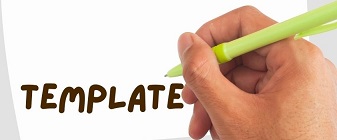The Development Strategy for the Food and Beverage Service Study Program as One of the Superior Study Programs at the Politeknik Pariwisata Makassar
(1) Politeknik Pariwisata Makassar
(2) Politeknik Pariwisata Makassar
(3) Politeknik Pariwisata Makassar
(*) Corresponding Author
DOI: https://doi.org/10.26858/ja.v7i2.15118
Abstract
The interest of students to continue studying at the Politeknik Pariwisata Makassar is very large and increases from year to year.. This study aims to formulate a development strategy for the Food and Beverage Service Management study program as one of the superior study programs at Makassar Tourism Polytechnic. This research uses descriptive quantitative method. Respondents in this study totaled 241 consisting of 140 male respondents and 101 female respondents who were a combination of students, lecturers/staff of the Food and Beverage Service Management study program at Makassar Tourism Polytechnic, hotel/restaurant employees, entrepreneurs, employees of other companies, and that hasn't worked. The data collection techniques used in this study were: questionnaires, interviews, Focus Group Discussion (FGD), and literature study. The data analysis technique was carried out in three stages, namely the input stage, the matching stage and the decision stage. The conclusion of this research is that the analysis results from the IFAS matrix show that the strength factor of the study program is much greater than the weakness factor so that the study program has strengths or advantages that can be developed. Meanwhile, the results of the analysis from the EFAS matrix show that the opportunities the study program has are greater than the threat factors so that the study program has a greater chance of being developed. As for the results of the QSPM matrix analysis, the TAS value that has been listed is that the W-O strategy gets the highest value of 6,354, the W-T strategy is 6,027 then the S-O strategy is 5,976 and finally the S-T strategy is 5,869. That is, the development strategy of the MTH study program is compiled in 14 priority strategies from 20 formulated strategies consisting of the W - O Strategy (5 strategies), the W - T Strategy (4 strategies), the S - O Strategy (3 strategies), and the S - T (2 strategies).
Keywords
Full Text:
PDFReferences
Astuti, R., Silalahi, R. L. R., & Wijaya, G. D. P. (2015). Marketing Strategy Based on Marketing Mix Influence on Purchasing Decisions of Malang Apples Consumers at Giant Olympic Garden Mall (MOG), Malang City, East Java Province, Indonesia. Agriculture and Agricultural Science Procedia, 3, 67–71. https://doi.org/https://doi.org/10.1016/j.aaspro.2015.01.015
Botituhe, N., Akib, H., & Gani, H. A. (n.d.). Strategy Formulation through Identification Of Asset Management Problem Of The Gorontalo City Government.
Boyd, W., & Harper, M. P. (2000). Suatu Pendekatan Strategis dengan Orientasi Global. Jakarta: Erlangga, 133.
Evelyn, E. (2018). Analisis Manajemen Strategi Bersaing Dengan Matriks Ie, Matriks Swot Dan Matriks Qspm Pada Pt. Xyz. Jurnal Manajemen Bisnis dan Kewirausahaan, 2(4).
Herdiansyah, H. (2010). Metodologi penelitian kualitatif untuk ilmu-ilmu sosial. In Jakarta: Salemba Humanika.
Ibrahim, R., Boerhannoeddin, A., & Kazeem Kayode, B. (2017). Organizational culture and development: Testing the structural path of factors affecting employees’ work performance in an organization. Asia Pacific Management Review, 22(2), 104–111. https://doi.org/https://doi.org/10.1016/j.apmrv.2016.10.002
Klein, D. A. (2009). The strategic management of intellectual capital. Routledge.
Kurniawati, R., Triyanti, N., & Daraba, D. (2019). Tourism Object Development Strategy in Rejang Lebong Regency Bengkulu Province. PINISI Discretion Review, 3(2), 143–150.
Prasodjo, T. (2020). Knowledge Management: Sustainable Human Resource Development in Public Sector Organizations. Jurnal Ad’ministrare, 6(2), 159–166.
Rangkuti, F. (2016). Personal SWOT Analysis Peluang di Balik Kesulitan. Jakarta: Gramedia.
Rasyid, A. R. (2020). Prototype of the Strategy for the Development of HR Competencies in the State Civil Service in Barru Regency. Jurnal Ilmiah Ilmu Administrasi Publik, 10(1), 133–142.
Sedarmayanti. (2018). Tata Kerja dan Produktivitas Kerja. In Bandung, CV Mandar Maju.
Setyosari, P. (2012). Research Methods Education and Development. Jakarta: Kencana Prenada Media Group.
Sofjan, A. (2013). Strategic Management, Sustainable Competitive Advantages. Jakarta: PT. Raja Grapindo Persada.
Sugiyono. (2017). Pendekatan Kuantitatif, Kualitatif, Kombinasi, R&D dan Penelitian Evaluasi. Bandung: Alfa Beta.
Article Metrics
Abstract view : 365 times | PDF view : 51 timesRefbacks
- There are currently no refbacks.
Copyright (c) 2020 Ratnah Ratnah, I Putu Suarta, Rita Rita

This work is licensed under a Creative Commons Attribution-NonCommercial-NoDerivatives 4.0 International License.






























 under a
under a